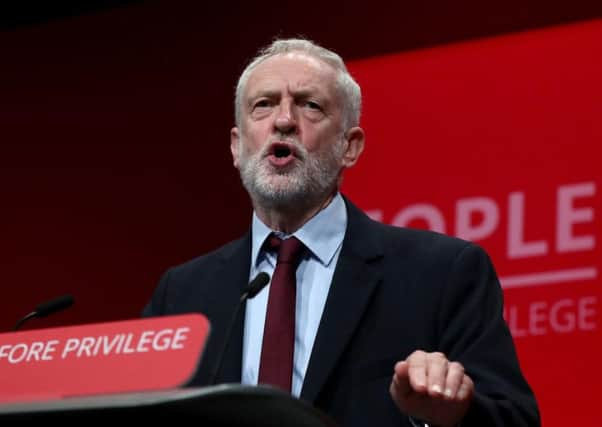Scotland’s big issue that SNP hardly mentions but should be urgent priority – Bill Jamieson


Who is now being engulfed in the most toxic ball of flame – a Hotpoint washing machine or the Labour Party?
At least with a dodgy washing machine you can pull the plug. No such recourse is open to Labour. A week after its crushing election defeat and the party at Westminster is choking on toxic fumes, consumed by fiery argument, division and convulsion.
Advertisement
Hide AdAdvertisement
Hide AdJeremy Corbyn’s leadership – hailed by candidates so recently as radical and transformative – is now being roundly denounced as a predictable disaster. Five leadership contenders have already emerged – or six, if you count Sir Keith Starmer’s nebulous ambiguity as two. Others contenders may yet emerge.
Time for healing and a coming together? Not yet awhile. Given the strength of support for Momentum, no early resolution can be counted on.
In Scotland, all this rancour and division may seem at one remove. Labour, once the dominant force in Scotland for decades, is reduced to just one MP. The SNP is well in the ascendant with 48. But a similar political convulsion may not be far off. Westminster may be unable to deny demands for a second indyref if the SNP continues to poll strongly in the 2021 Holyrood election, making a 2022 referendum a strong possibility.
That heralds a profound epochal choice for Scotland between staying with the UK out of the EU or full EU membership, with all this implies for relations with the rest of the UK. To the familiar 2014 arguments over debt and deficit constraints, currency and tax policy will be added another, equally divisive: the prospect of a hard border and all its associated problems.
The ‘No’ result of the 2014 referendum owed much to the last-minute intervention by former Labour leader Gordon Brown. Without the emergence of a credible centre-Left but pro-Union opposition this time around, the SNP looks assured of victory.
The scale of Scottish Labour’s collapse in barely a decade has been astonishing. And it is much more than a leadership failure, an utterly over-crammed manifesto, a failure to communicate, or that old chestnut, “media bias”.
The party, with its former heartlands in deprived, worn-down, left-behind communities, is having to face a scale and depth of economic and social change comparable to the de-industrialisation of the early 1980s. This is commonly blamed on “Thatcherism” but was largely the product of inevitable and unavoidable forces in our economic composition. Labour has to find, not just a more appealing message, but a fresh power base, more reflective of the changed, digital age in which we live.
But the SNP, too, faces a formidable challenge. While it may secure a go-ahead for a second referendum, there is no guarantee that it will win. This time around, the proposition it puts to Scottish voters will be altogether more far-reaching and challenging: a clear – and credible – solution to the currency conundrum for starters; a programme for debt and deficit reduction to meet EU requirements another. And how will the prospect of port and border scrutiny and checks go down with tens of thousands of Scottish business, bearing in mind that by far the greater proportion of Scotland’s exports are to the rest of the UK, not the EU?
Advertisement
Hide AdAdvertisement
Hide AdThe more immediate challenge is how to boost growth in a lacklustre Sottish economy. Figures out this week showed Scotland’s GDP grew by just 0.3 per cent in real terms during the third quarter.
True, the underlying performance of the UK economy, as well as Scotland, is a worry. And with 2019 set to be the weakest year for global growth since the financial crisis, the Fraser of Allander Institute has reduced its forecast for this year slightly to 0.9 per cent. So long as a ‘no deal’ Brexit outcome is removed and a UK-EU trade deal agreed during 2020 – far from a certainty – it foresees growth slightly better, at 1.3 per cent for next year and 1.4 per cent in 2021 and 2022.
However, institute director Professor Graeme Roy is not impressed by the Holyrood administration efforts to talk up prospects. “For all the talk we hear about ‘outcomes’ and ‘wellbeing’”, he writes, “the political narrative in Scotland once again returned to the same tired format of which party was promising to spend the most (or least) on public services or tax the most (or least).”
Whatever the belching smoke that is Labour today, that long-neglected area barely ever mentioned by the First Minister – business confidence and investment – has to be an urgent priority for the SNP.